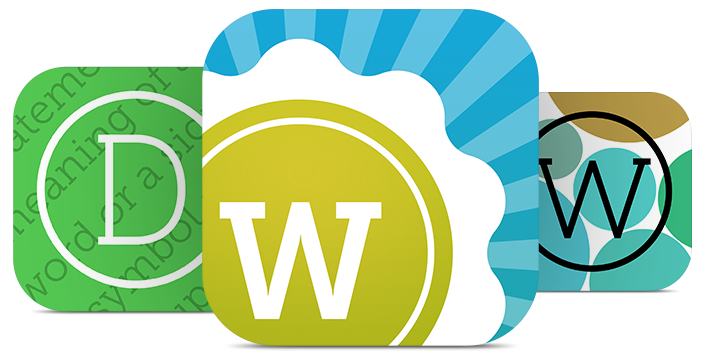Community Embraces New Word Game at Mid-Year Play Day This past Sunday, families at Takoma Park’s Seventh Annual Mid-Year Play Day had the opportunity to experience OtherWordly for the first time. Our educational language game drew curious children and parents to our table throughout the afternoon. Words in Space Several children gathered around our iPads […]
Read moreSupporting literacy
IDEA’s current focus is increasing linguistic mastery through vocabulary expansion and fluency. We want to empower people with the knowledge they need to have confidence in knowing that, when they reach for the right word, they’re able to find it. We stand out from the crowd by creating language apps that take a distinctly different approach from that of conventional references or word games. Our apps inspire users to scrutinize relationships between words and grasp previously unseen shades of meaning.
Words matter
Emojis can convey volumes, but most human expression – whether prose, poetry, or a grocery list – demands words. A typical third grader knows 10,000 words, and by late adolescence the lexicon of a native English speaker can more than double, but only if they read. A 20-year-old who rarely reads is limited to a vocabulary of 12,000 terms; a prolific reader has a lexicon of more than 26,000 words, along with countless proper names and word combinations (e.g., Beyonce, giant sequoia).
So does fluency
When it comes to nuanced thought and expression, expansive vocabulary is just one piece of the puzzle. Deftness for choosing the right word also matters. As is typical of most novelists, Suzanne Collins was able to create the compelling dystopian universe of The Hunger Games with slightly more than 8,000 unique words. Shakespeare crafted his longest play, Hamlet, with about 5,000 unique words. Diction is key to expressing context, subtleties, and shades of meaning.
Ease in swiftly recalling and deploying the right words empowers people to convey thoughts, emotions, and information with clarity and precision. This nurtures confidence, allowing speakers to navigate social and professional interactions with assurance. Confidence reinforces fluency, as those secure in their language skills are likely to participate more actively in conversations, explore a wider range of vocabulary, and engage more deeply with others.

Every English speaker has an active vocabulary and an inactive vocabulary. Our intent is to shift a portion of the user’s inactive vocabulary into their active one, as well as to encourage them to learn new words. To help achieve this goal, we created the IDEA Linguabase, a massive database of definitions and word associations.
Informing and entertaining
We aim to make a sport out of lexicographic information. We want to draw users down a rabbit hole of related words and usage examples, leading them to new insights and discoveries.
Our tools and games contain more related words than any bound thesaurus or app on the current market. Our In Other Words app includes millions of real examples from major works of fiction and nonfiction throughout the 20th and 21st centuries.
Read more about our dictionary/thesaurus app, In Other Words.
 To reach a wide audience and appeal to multiple learning styles, we’ve created OtherWordly, a game designed to encourage word exploration, expand vocabulary, and deepen understanding of word meanings. The game shares a legacy with crossword puzzles (missing letters, clues), but it’s mashed up with the match-three mechanic of many wildly popular mobile arcade and strategy games.
To reach a wide audience and appeal to multiple learning styles, we’ve created OtherWordly, a game designed to encourage word exploration, expand vocabulary, and deepen understanding of word meanings. The game shares a legacy with crossword puzzles (missing letters, clues), but it’s mashed up with the match-three mechanic of many wildly popular mobile arcade and strategy games.
Read more about the OtherWordly game.
Filling a gap
 Dictionaries are based on a simple – and obsolete – business model in which a huge up-front investment is recouped over years of sales. The print dictionary’s history traces back to 1755, when Samuel Johnson published A Dictionary of the English Language. The standard for over 150 years, a dictionary’s accessibility was limited to wealthy individuals and institutions. It wasn’t until the mid-19th century – when paper and printing became more affordable – that the consumer market expanded.
Dictionaries are based on a simple – and obsolete – business model in which a huge up-front investment is recouped over years of sales. The print dictionary’s history traces back to 1755, when Samuel Johnson published A Dictionary of the English Language. The standard for over 150 years, a dictionary’s accessibility was limited to wealthy individuals and institutions. It wasn’t until the mid-19th century – when paper and printing became more affordable – that the consumer market expanded.
 During the 20th century, access to dictionaries and thesauri exploded. A handful of competing publishers (Merriam-Webster, Oxford, Chambers, Macmillan, and Random House) released dictionaries that were both expensive and time-consuming to produce. For example, the unabridged Webster’s Third New International Dictionary took a decade to create. Published in September 1961, its 450,000 entries required 757 editor-years of effort and $3.5 million ($27 million in 2019 dollars) to produce.
During the 20th century, access to dictionaries and thesauri exploded. A handful of competing publishers (Merriam-Webster, Oxford, Chambers, Macmillan, and Random House) released dictionaries that were both expensive and time-consuming to produce. For example, the unabridged Webster’s Third New International Dictionary took a decade to create. Published in September 1961, its 450,000 entries required 757 editor-years of effort and $3.5 million ($27 million in 2019 dollars) to produce.
The dictionary’s transition to the 21st century was underwhelming. Early dictionary apps proved weak and unimaginative, offering content largely unchanged from the previous half century. Today, free dictionary apps use a limited database – typically only WordNet – while commercial apps are priced like ebooks.
To give the public access to better word data at a lower cost, IDEA created In Other Words, a user-friendly, visually appealing mobile reference app. Our language game, OtherWordly, fills a void by drawing on the appeal of word scrambles and crossword puzzles while engaging players with enticing game mechanics. Our massive Linguabase serves as the foundation for both projects, taking advantage of the large storage capacity of today’s devices and offering an unprecedented quantity of word definitions, associations, and connections.


